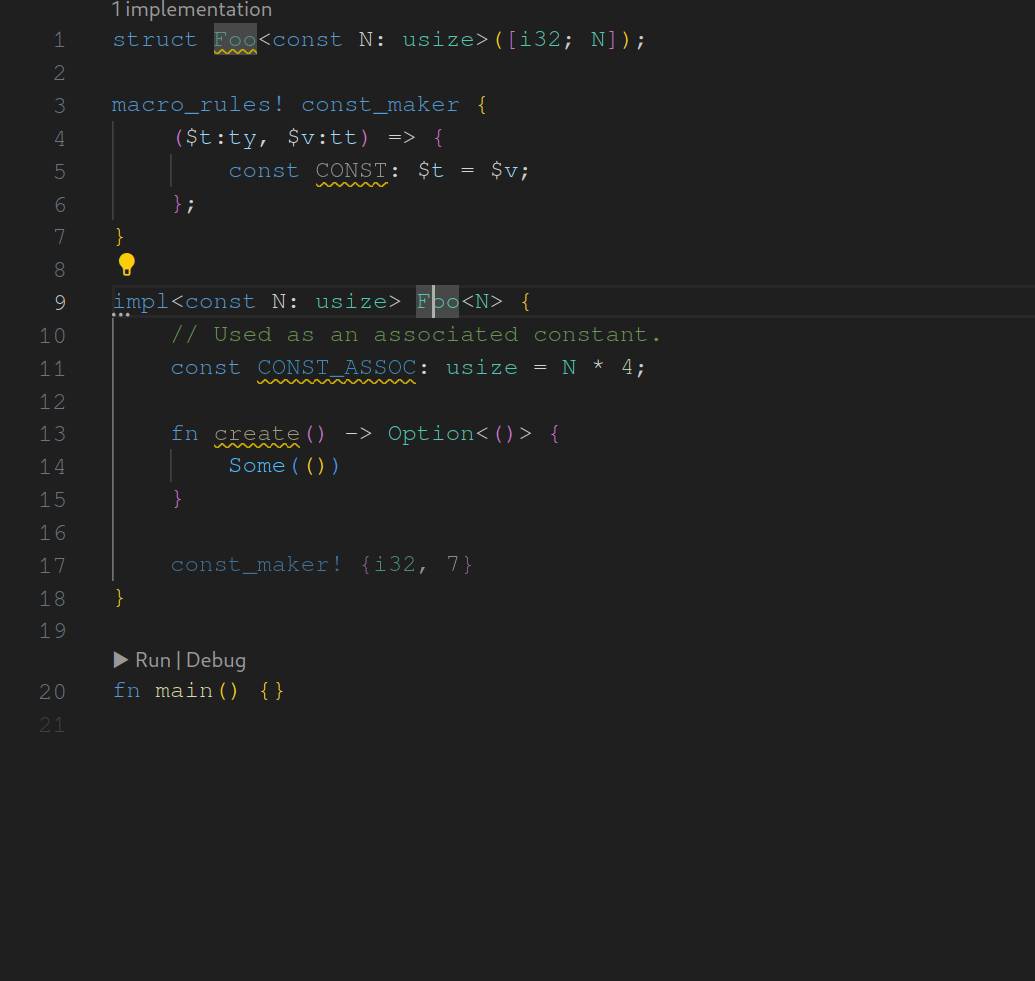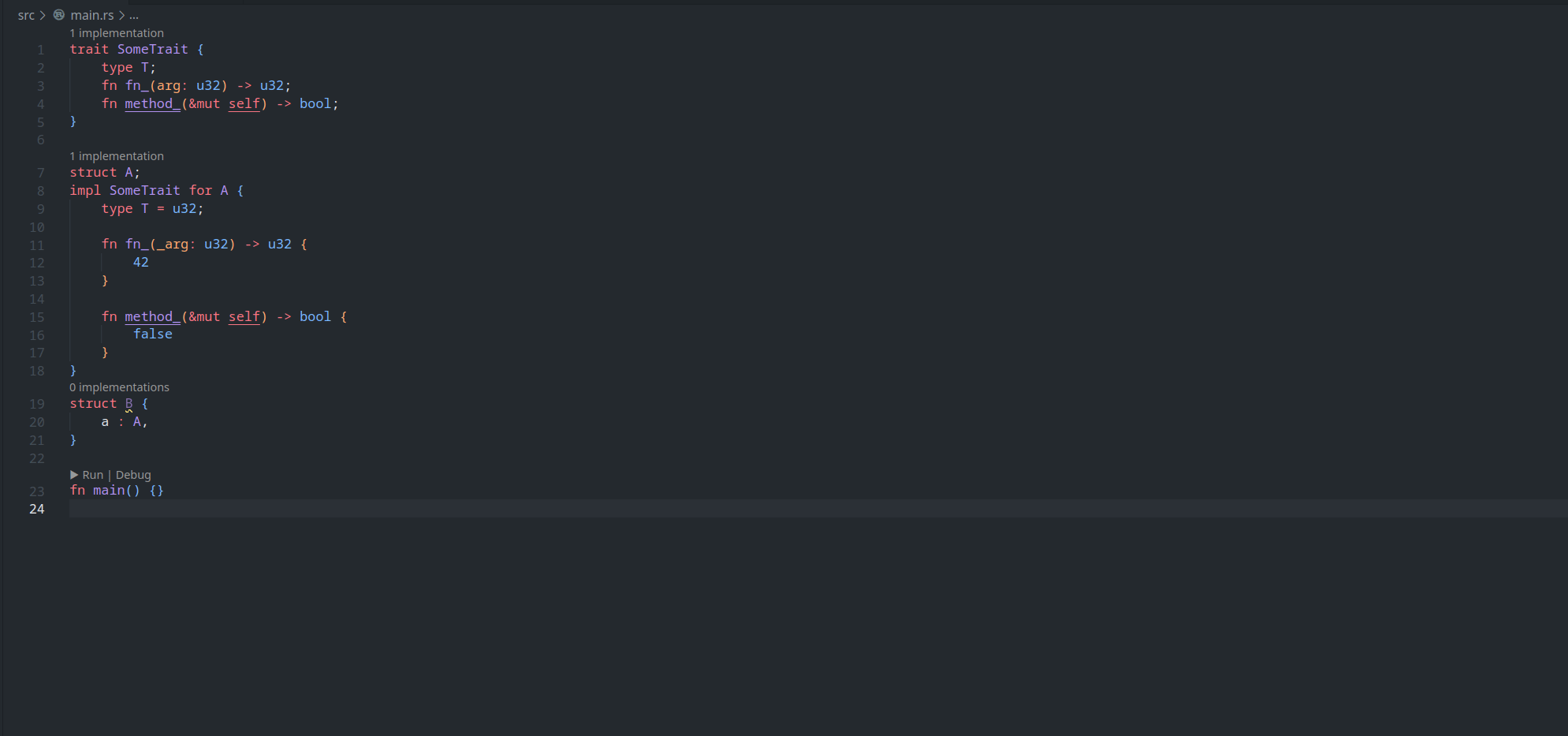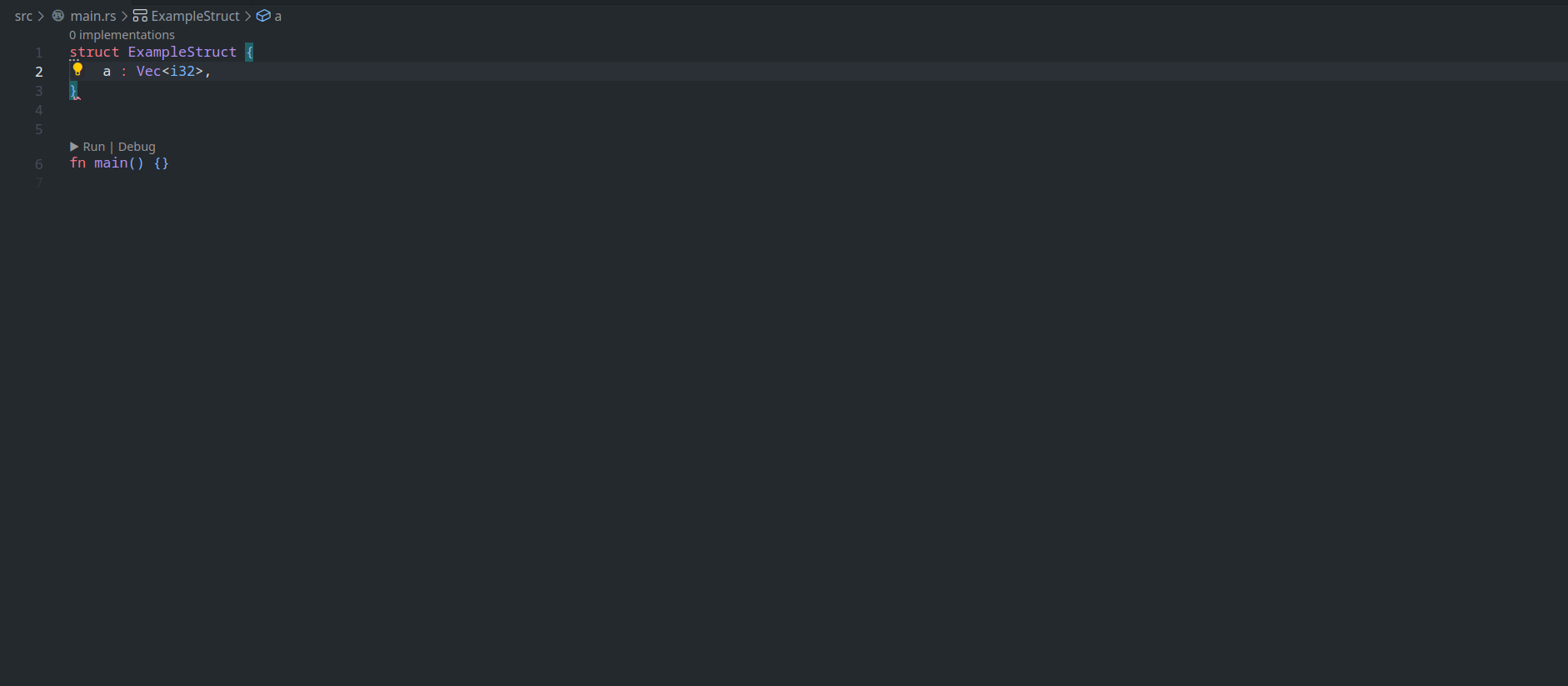Unify getter and setter assists
This PR combines what previously have been two different files into a single file. I want to talk about the reasons why I did this. The issue that prompted this PR ( and before I forget : this pr fixes#15080 ) mentions an interesting behavior. We combine these two assists into an assist group and the order in which the assists are listed in this group changes depending on the text range of the selected area. The reason for that is that VSCode prioritizes actions that have a bigger impact in a smaller area and until now generate setter assist was only possible to be invoked for a single field whereas you could generate multiple getters for the getter assist. So I used the latter's infra to make former applicable to multiple fields, hence the unification. So this PR solves in essence
1. Make `generate setter` applicable to multiple fields
2. Provide a consistent order of the said assists in listing.
assist : generate trait from impl
fixes#14987 . As the name suggests this assist is used to generate traits from inherent impls while adapting the original impl to fit to the newly generated trait. I made some decisions regarding when the assist should be applicable. These are surely open to discussion. I looking forward to any feedback.

internal: Format let-else
As nightly finally got support for it I went ahead and formatted r-a with the latest nightly, then with the latest stable (in case other stuff changed)
Clean up `ImportMap`
There are several things in `hir_def::import_map` that are never used. This PR removes them and restructures the code. Namely:
- Removes `Query::name_only`, because it's *always* true.
- Because of this, we never took advantage of storing items' full path. This PR removes `ImportPath` and changes `ImportInfo` to only store items' name, which should reduce the memory consumption to some extent.
- Removes `SearchMode::Contains` for `Query` because it's never used.
- Merges `Query::assoc_items_only` and `Query::exclude_import_kinds` into `Query::assoc_mode`, because the latter is never used besides filtering associated items out.
Best reviewed one commit at a time. I made sure each commit passes full test suite. I can squash the first three commits if needed.
feature : assist delegate impl
This PR ( fixes#14386 ) introduces a new IDE assist that generates a trait impl for a struct that delegates a field. This is a draft because the current `ide_db::path_transform::PathTransform` produces some unwanted results when it deals with extern crates, an example of which I attach as a GIF.
GIFs :
1. A general case

2. A case where `ide_db::path_transform::PathTransform` fails to correctly resolve a property ( take `Allocator` as an example ) to its full path, thus causing an error to occur. ( Not to even mention that resolving this causes another error `use of unstable library feature 'allocator_api'` to occur

Remove scope_for_def calls as the definition have been removed entirely.
As a result of this change the problem with false path resolutions has been solved.
Lower const params with a bad id
cc #7434
This PR adds an `InTypeConstId` which is a `DefWithBodyId` and lower const generic parameters into bodies using it, and evaluate them with the mir interpreter. I think this is the last unimplemented const generic feature relative to rustc stable.
But there is a problem: The id used in the `InTypeConstId` is the raw `FileAstId`, which changes frequently. So these ids and their bodies will be invalidated very frequently, which is bad for incremental analysis.
Due this problem, I disabled lowering for local crates (in library crate the id is stable since files won't be changed). This might be overreacting (const generic expressions are usually small, maybe it would be better enabled with bad performance than disabled) but it makes motivation for doing it in the correct way, and it splits the potential panic and breakages that usually comes with const generic PRs in two steps.
Other than the id, I think (at least I hope) other parts are in the right direction.
fix: implemeted lifetime transformation fot assits
A part of https://github.com/rust-lang/rust-analyzer/issues/13363
I expect to implement transformation of const params in a separate PR
Other assists and a completion affected:
- `generate_function` currently just ignores lifetimes and, consequently, is not affected
- `inline_call` and `replace_derive_with...` don't seem to need lifetime transformation
- `trait_impl` (a completion) is fixed and tested
internal: Migrate some assists to use the structured snippet API
Migrates the following assists:
- `add_missing_impl_members`
- `extract_type_alias`
As an additional requirement, these assists are also migrated to use the mutable AST API, since otherwise there would be overlapping `Indel` spans
The change updates the logic to determine if a function parameter is
valid for replacing the type param with the trait implementation.
First all usages are determined, to check if they are used outside the function
parameter list. If an outside reference is found, e.g. in body, return type or
where clause, the assist is skipped. All remaining usages only appear in the
function param list. For each usage the param type is checked to see if
it's valid.
**Please note** the logic currently follows a heuristic and may not cover
all existing parameter declarations.
* determine valid usage references by checking ancestors (on AST level)
* split test into separate ones
Fix edits for `convert_named_struct_to_tuple_struct`
Two fixes:
- When replacing syntax nodes, macro files weren't taken into account. Edits were simply made for `node.syntax().text_range()`, which would be wrong range when `node` is inside a macro file.
- We do ancestor node traversal for every struct name reference to find record expressions/patterns to edit, but we didn't verify that expressions/patterns do actually refer to the struct we're operating on.
Best reviewed one commit at a time.
Fixes#13780Fixes#14927